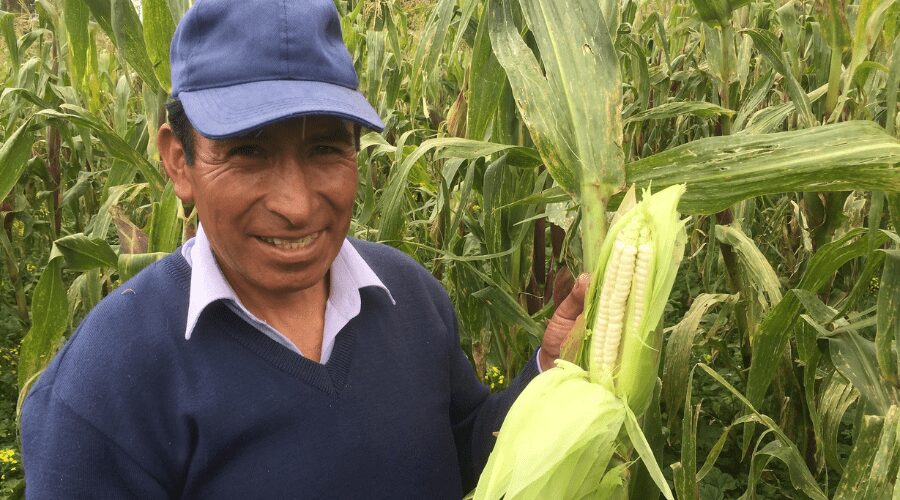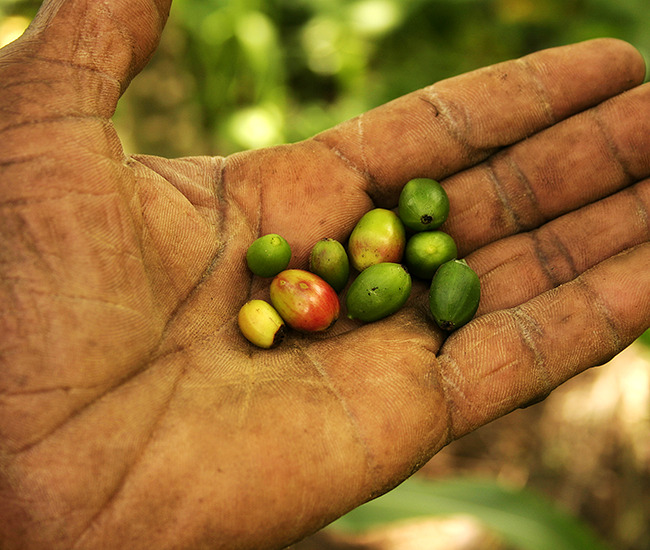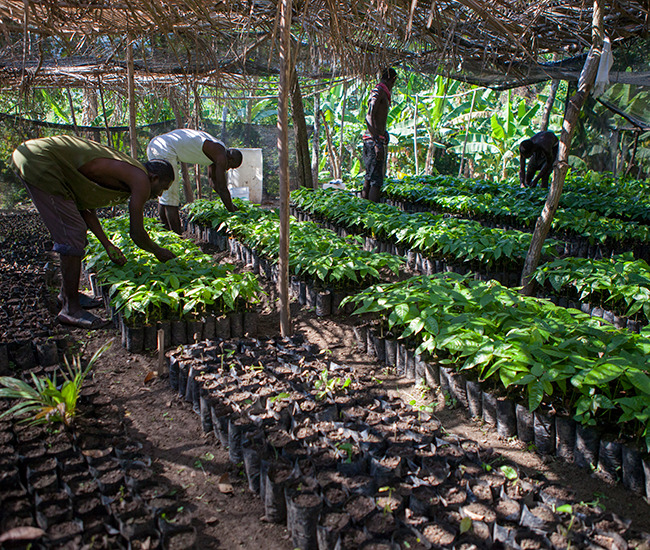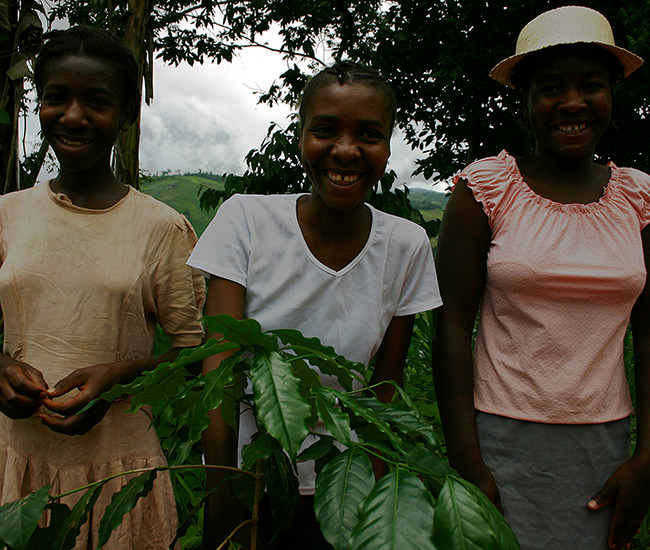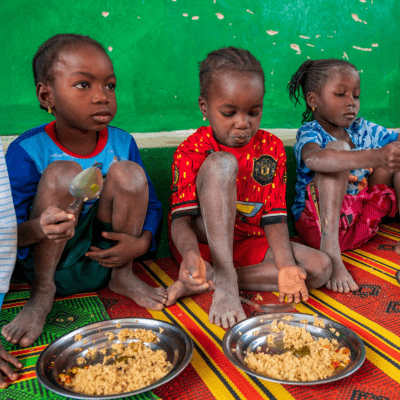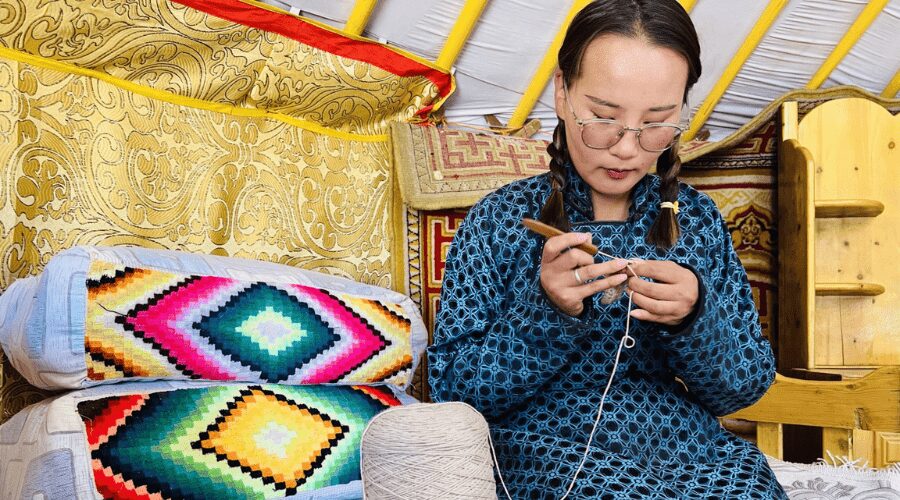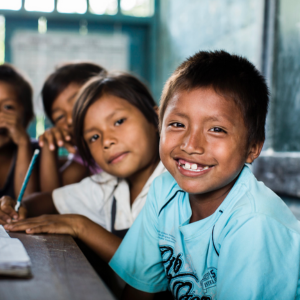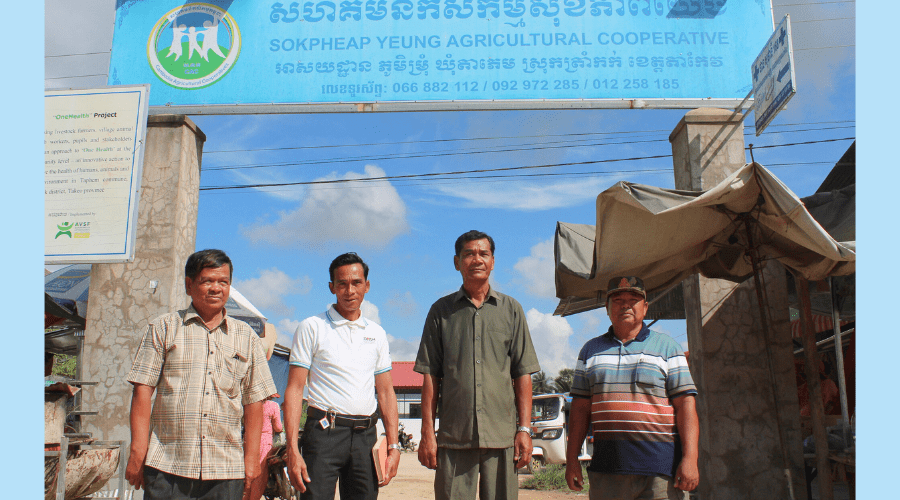For AVSF, Myriam Mackiewicz, AVSF Technical Director
According to the FAO definition, food security exists when all people, at all times, have physical, social and economic access to safe food in sufficient quantity and of sufficient quality to satisfy their dietary needs and food preferences.
Food crops and cash crops: no longer opposed to each other
As Nicolas Bricas has shown, the opposition between “food crops”, intended for self-consumption, and “cash crops”, intended for sale, particularly on export markets, is no longer effective today. Indeed, under the combined effect of urbanisation and the transformation of food systems, demand has changed and certain agricultural products, which were once mainly intended for self-consumption, now fulfill a dual role: feeding the families who produce them and supplying urban and rural markets, which are growing rapidly. This is the case with maize and tubers such as yams and manioc, which are highly prized in the countries of the Gulf of Guinea, from Côte d’Ivoire to Nigeria.
Furthermore, in many countries, export crops such as cocoa are either grown in association with other crops, for example in Haiti with yams, taro, etc., or integrated into a diversified production system comprising different plots such as maize, yams and plantains. In addition, all the agricultural products that are marketed generate income that can be used for health, education or food expenses. So, for AVSF, in many situations, “export crops” are part of a rationale for diversifying sources of income and managing risks for farming families and, for the reasons set out above, should not be contrasted with so-called “food crops”.
Working alongside farming families
AVSF supports farming families in the production of “ancestral” food crops, such as potatoes in Colombia or rice in Madagascar, and crops intended for export, such as cocoa in Côte d’Ivoire or vanilla in Madagascar, with the aim of improving families’ incomes and living conditions.
To enable farming families to produce better and earn a decent income, AVSF is first and foremost involved in so-called “technical” actions , including support, advice, training and farmer experimentation. At the same time, AVSF and its partners engage in more “political” actions. AVSF supports farmers’ organisations in their demands for fairer trade policies to combat “dumping”, such as the importation of low-cost European poultry or milk powder into certain West African countries, which compete with local products.
Finally, for AVSF, it is essential to support farming families in defending their rights: access to land, credit and training, to ensure a beneficial socio-economic environment and thus contribute to food security !
